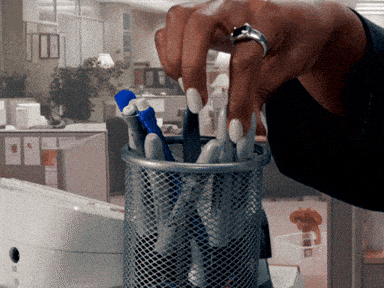Law
Congress investigating America’s largest private health insurer

AI-Generated Image via Bing Image Creator
Ever gotten mad over a bill from your healthcare company? You might want to join Congress. US lawmakers interrogated UnitedHealth CEO Andrew Witty over two congressional panels this week, months after the cyberattack on the company's Change Healthcare unit, which processes around 50% of all medical claims in the US.
Congress wanted to know one thing in particular… how UnitedHealth handled the breach of patient data. Lawmakers also probed the company about its finances, and is investigating if its grown too big to handle the risk it takes on daily.
In case you missed it
The cyberattack debilitated the healthcare industry and left doctors, pharmacies, and hospitals without critical infrastructure. Still, the breach has left widespread disruptions in its wake, impacting patients and providers across the country.
Change Healthcare first noticed the breach at the end of February and rushed to disconnect its systems, which inevitably stopped them from giving patients urgently needed prescriptions.
At the time, the UnitedHealth subsidiary was unclear if any patient data was stolen in the attack, but that changed with the congressional hearings.
UnitedHealth is a massive company…
…which makes this a massive deal. To give you a good idea:
UnitedHealth is the fourth-largest company in the US by revenue this year (larger than Alphabet and Microsoft), and has a market cap of almost $450 billion.
The company is projecting a $24.7 billion profit next year.
One analyst estimated that over 5% of US GDP flows through UnitedHealth’s systems… each day.
Change Healthcare, the subsidiary of UnitedHealth that was victim to the cyberattack, serves over 67,000 pharmacies and handles up to a third of all patient records in the US.
Now that you know why Congress wanted to grill them so bad, we can get into the panels.
The healthcare hearings
Andrew Witty, UnitedHealth’s CEO, was berated with questions regarding the breach, with lawmakers asking why they failed to prevent it, and why they couldn’t contain the aftermath.
While being pressed for details, Witty admitted:
That "maybe a third" of all Americans' health information and personally identifiable information was stolen.
The server that was hacked did not have multi-factor authentication.
The security platform used wasn’t up to date with the requirements US health officials and the FBI issued in December of last year.
UnitedHealth paid AlphV, the hacker group, around $22 million in bitcoin as ransom, but knew there was no guarantee that the breached data could not still be leaked.
The congressional panel, specifically Senator Bill Cassidy, asked Witty whether the company is too big for its own good, and can handle crises like the cyberattack.
Witty responded by saying “I don't believe it is because actually despite our size, for example, we have no hospitals in America, we do not own any drug manufacturers.”
However, this is a direct contradiction to the facts. Change Healthcare handles medical claims for around 900,000 physicians, 67,000 pharmacies, 5,500 hospitals and 600 laboratories in the United States.
UnitedHealth might have a problem on its hands. Given the size of UnitedHealth, as we listed earlier, the company has drawn little attention from regulators. The DOJ launched an antitrust investigation into UnitedHealth a few months ago, and this week’s hearings show lawmakers are ready.
Not to mention, some lawmakers are asking the SEC to investigate strangely timed stock sell offs by UnitedHealth execs that occurred briefly before media outlets broke work of the antitrust investigation.
Aerospace
Boeing wants to make up for its losses on Earth… in space

Joe Raedle / Getty Images
The infamous aviation company is doing so poorly on Earth that it thinks leaving the planet will help it recover… but it can’t even do that right. On Monday, Boeing was planning to launch its new capsule, Starliner, to the International Space Station with two NASA astronauts on board. As you might have picked up, it never even left the ground. Sigh.
If it eventually launches, it’s a big deal: For Boeing, Starliner could give it a chance to prove the company can transport humans into space (safely) and help redeem itself from its consistently poor quality control measures. For NASA, the launch would give the agency another option to go to for space missions other than SpaceX, which it has heavily depended on for years.
How did it get to this point?
After the Space Shuttle program ended, NASA needed a means of getting its astronauts to the ISS, thus, it offered contracts to SpaceX and Boeing worth $6.8 billion to get the job done. Since then, like the estranged group member on your college presentations, Boeing has failed to show up:
SpaceX has flown nine crewed flights for NASA since 2020, not to mention four with private astronauts.
Boeing’s Starliner has launched only two test flights, both of which were plagued by technical issues, and neither of which were manned.
In total, the Starliner program has exceeded its budget by $1.5 billion and has been delayed for seven years now. At least there aren’t whistleblowers popping up dead.
What’s next?
At least in the space taxi business, its uncertain where the world’s biggest aviation company end up.
Even if the test flight had exceeded expectations, there are a couple reasons why Boeing’s future is looking bleak in aerospace:
The ISS is planned to be decommissioned in 2030, meaning Boeing could only make a maximum of six more missions for NASA. And that’s if they can get one off the ground.
Plus, its 737 Max production troubles (among everything else), has left the company with $3.9 billion in expenses in 2024, which has some questioning how it’ll fund its space endeavors, Bloomberg reported.
NASA's commercial crew program manager Steve Stich told reporters, “We’re taking it one step at a time, and we’re going to launch when we’re ready and fly when it’s safe to do so,” lending more uncertainty to when Boeing will get things off the ground.
Learn how to make AI work for you.
AI breakthroughs happen every day. But where do you learn to actually apply the tech to your work? Join The Rundown — the world’s largest AI newsletter read by over 600,000 early adopters staying ahead of the curve.
The Rundown’s expert research team spends all day learning what’s new in AI
They send you daily emails on impactful AI tools and how to apply it
You learn how to become 2x more productive by leveraging AI
Grab Bag
Florida is the first state to ban lab grown meat

Getty Images
If you don’t want your dinner from a petri dish then you’re probably jumping for joy. Florida lawmakers passed a bill to ban the sale of lab grown meat, which was signed into law by Governor Ron DeSantis late last week. Other states have proposed similar bills, and may follow in the footsteps of the sunshine state.
Meat you in the lab
Meat lobbying groups and politicians are pushing back on lab-grown meat after years of huge fundraising cycles, media presence, and intrigue about the cultivated meat industry.
Around 150 companies have been working to make cultivated lab-grown meat as of 2023.
Upside and Good Meat, two startups in the industry, earned USDA approval last year for their lab-grown chicken.
However, no cultivated meat is currently being sold in the United States, and both startups say their products will start out in restaurants before supermarkets.
How is it made? The lab-made protein is created by using animal cell cultures and developing them in a lab setting until it grows into an edible meat alternative.
But why ban lab-grown meat?
Florida is ninth overall in the nation for beef cattle production, and cows make over $900 million annually in the state, according to the Florida Department of Agriculture and Consumer Services.
Gov. Ron DeSantis claimed the cultivated meat movement could endanger the state’s agriculture industry, ranching in particular. He also stated it could limit some of the revenue brought in by the beef industry as well as put farmers out of business.
Big beef isn’t happy either: Historically, the national meat industry has heavily lobbied against any competitors, and traditional meat producers see cultivated meat as a big one.
In late 2021, the National Cattlemen’s Beef Association argued that lab-grown meat can’t be called beef.
The same association and other lobbyists vyed for bills that would ban cultivated meat from being served in schools, but none have been passed as of yet.
Although, not all meat titans agree: Big meat processors like Tyson, Perdue, Nestlé, Cargill, and Unilever have all invested in cultivated meat (or at least alternatives forms of protein) or created their own departments to catch growing demand. The North American Meat Institute also disagreed with Florida’s new law, claiming it would “restrict consumer choice and stifle innovation.”
Saudi Arabia’s plans for its futuristic city are crumbling

Neom
In the least surprising news of the day, a 105 mile long futuristic city being built in the middle of the desert is encountering problems. Saudi Arabia’s planned $1.5 trillion futuristic city, Neom, or The Line (as its ominously called), is expectedly finding hurdles to jump over.
Impossible undertakings and increasing costs are plaguing the engineers, architects, and executives that are trying to build the two skyscrapers, which are supposed to be 33 times the size of New York in square footage.
Why is it so hard?
If you can’t immediately see why this would be difficult, we see why you aren’t an engineer. Here are just a few of the problems getting in the way of the utopia:
Originally, 1.5 million residents were supposed to move in to the Line by 2030, but according to Neom execs, it’s now expected to be under 300,000.
That’s still giving them six years to move the equivalent of Pittsburgh, Pennsylvania’s population in a 105 mile long building that still doesn’t have a foundation. Good luck.
A planned $38 billion ski resort also has costs overflowing, and due to a need for more infrastructure for the 100,000 workers on the site, construction delays keep piling up.
Not to mention the sheer size of the city: Each tower will be roughly the length of Connecticut and almost 200 feet taller than the Empire state building.
Crown Prince Mohammed bin Salman has been trying to diversify Saudi Arabia’s economy for years, as oil makes up for over 40% of its GDP. But, with a cost of more than $2 trillion being projected, its unsure if even they can afford it.
Fast Facts

GIF via GIPHY
Pen Payment: Ever wanted a cool looking pen? What about one worth $19,400? Meet Montegrappa’s Gladiator Italian Idol pen. It’s made from sterling silver, vermeil, and leather, each pen has an 18-karat gold nib and comes with a Colosseum-shaped desk display and a leather travel case. Worth it.
Hat Hair: Panera Bread sold out of its Bread Head Hat, a $21 piece of headwear that’s just a bread bowl decorated with ostrich feathers.
Space Samples: China launched a rocket to collect samples from the dark side of the moon as it competes with US space exploration.
Costly Computer: The US government is auctioning off a giant 5.34-petaflop supercomputer that in 2016 was the 20th most powerful computer in the world. The price has already hit $480,000.
Old Infant: American Airlines keeps mistaking a 101-year-old woman for a baby.
Earn Free Gifts 🎁
You can get free stuff just by referring friends and family to our newsletter. Sweet deal right?
1 referral - NextGen News digital badge ✅
5 referrals - $5 gift card 💳
10 referrals - Luxury satin pillowcase 🛏
20 referrals - Carhartt beanie (of your choice) 🤠
{{rp_personalized_text}}
Copy and paste this link to share: {{rp_refer_url}}







